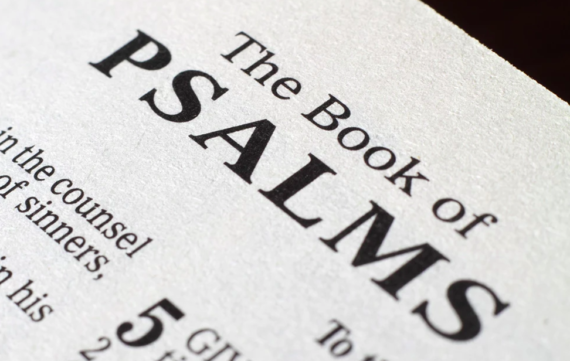There is some value in knowing the different types of psalms. It is not a panacea, but it is often helpful.The largest number of psalms are laments (mostly individual laments). Five of the seven we have looked at so far fit the lament category. There are also Wisdom psalms. Psalm one is a clear example of that.
Our psalm for this week is a hymn, specifically a hymn of praise to the creator.
As with Psalm 2, we will do well to look at it from the Old Testament point of view first before considering it from a New Testament perspective.




Before doing even that, we need a word of warning. There is often much lost when we try to explain a poetic expression of praise. Poems and songs go well beyond the words. If not understood, explanation may not help. If they are understood, explanation is not needed.
Structure
This hymn opens with an expression of praise in which God’s greatness is indicated in two interesting ways.
“O Lord, our Lord, how majestic is your name in all the earth! You have set your glory above the heavens. 2 Out of the mouth of babies and infants, you have established strength because of your foes, to still the enemy and the avenger.
Did we notice that? Most of God’s glory is out of our sight, “above the heavens.” Yet, his greatness is such that he can use little children to defend his glory against those who attack it.
- Next, there is a contrast drawn to point out the smallness of man.
“When I look at your heavens, the work of your fingers, the moon and the stars, which you have set in place, 4what is man that you are mindful of him, and the son of man that you care for him?” (3-4)
The heavens, so very big from our point of view, are the work of his “fingers.” No wonder the author is driven to ask, “Why is he then concerned with us?”
- Then we are reminded of the role we have been given. An incredible role when we think of it.
“Yet you have made him a little lower than the heavenly beings and crowned him with glory and honour. 6 You have given him dominion over the works of your hands; you have put all things under his feet, 7 all sheep and oxen, and also the beasts of the field, 8 the birds of the heavens, and the fish of the sea, whatever passes along the paths of the seas.” (5-8)
Tiny insignificant creatures though we are, we have been made God’s regents on the earth. This, of course, is a poetic echo of the creation account. “Be fruitful and multiply and fill the earth and subdue it, and have dominion over the fish of the sea and over the birds of the heavens and over every living thing that moves on the earth” (Gen 1:28).
Modernism denied this by saying that the earth belongs to us. Postmodernism denies it by saying that we are on par with the animals.
Christians must learn to articulate a biblical view of nature. It belongs to God. We are to use it to his glory. But humans are special, not at all on par with the dogs and cats, the Snail Darter, and the Hoot Owl. We are the image of God on this earth — the only terrestrial beings who imitate our creator by being constantly creative, and the only terrestrial creature given a responsibility.
If you wonder why both modernism and postmodernism want to deny the biblical view of nature, there you have it — responsibility. Modernism sidestepped our responsibility by claiming that we could do as we pleased. Postmodernism sidesteps it by claiming that we are nothing special.
But do not ask why God has given tiny and flawed beings like us this big responsibility. It just is so.
- Which leads us back to the praise with which the Psalm began. “O Lord, our Lord, how majestic is your name in all the earth!” (9)
New Testament Usage
It is time now to ask, “How does the New Testament use of this psalm add to the understanding of its original intent?
The New Testament uses this psalm is two ways. It is used to point to the truth that God still prefers to glorify himself through the tiny ones. We find that usage in Matthew 11:25; 21:16 and in 1 Corinthians 1:27.
The New Testament also uses it to point to Jesus as the final fulfilment of what mankind was supposed to be. Humans, all of them, fail to be what they should have been because of sin. The earth is not in subjection to us as originally planned. The reason is sin. But all authority has been given to Jesus (Mt 28:18), and he will reign until he puts all things under his feet (1 Cor 15:27). He was made lower than the angels so that in him, mankind could finally realize the purpose for which our race was created (Heb 2:6-8).
We are not realizing the purpose for which we were created. We will never realize it, except as we allow Christ to live in us.

